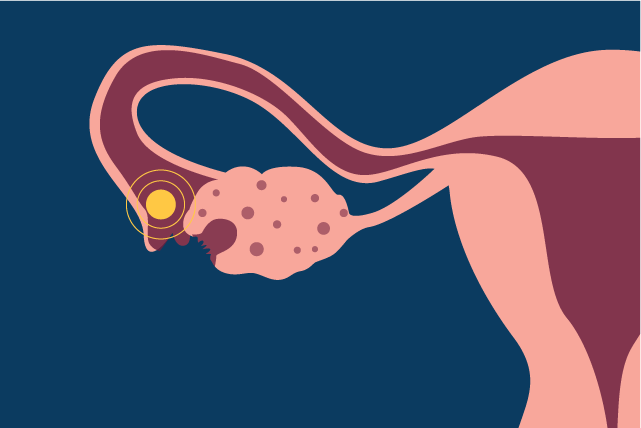
11:31 20th October 2022 | Ovulation
female infertility ovulation menstrual cycle period irregular cycle
When trying to conceive, it’s important to know what ovulation is and when it occurs. This blog will discuss the five top signs of how to know when you’re ovulating. Remember, every woman is different, so by understanding your cycle and your ovulation symptoms you can increase the chances of falling pregnant by choosing optimal times for intercourse.
It is useful to understand what ovulation is and when it happens. You might already know that ovulation is the phase in your menstrual cycle when the ovary releases a mature egg that travels down the fallopian tube for fertilisation. Women are born with millions of immature eggs, all waiting to be released, usually one per month, a few weeks after menstruation starts.
It is generally estimated that ovulation occurs on day 15 of a woman’s menstrual cycle, however, everyone is different. Women of childbearing age have a menstrual cycle that lasts between 28 – 32 days. Between days 10 and 19 ovulation can be expected to occur (roughly 12 – 16 days before the next menstruation). Speak to our nurses if you are unfamiliar with your body’s menstrual calendar.
Ovulation can be irregular or not occur for some women, especially when pregnant, post-menopause or when consistently using birth control. The following can also cause ovulation to cease:
Some women feel moody, have headaches or experience breast tenderness, while others do not notice any changes. The following five signs are brought on by hormonal shifts which may indicate that you are ovulating.
Reach out to us today and let's get your journey started safely and compassionately.
Email us: enquiries@thebridgeclinic.com or call 01 631 0092 or call/WhatsApp us via 01 631 0092 / 0810 460 779 Info source: The Bump
Search by condition, treatment or keyword and conveniently browse our informative articles
Book an appointment online or search for a clinic close to you.
Book an Appointment